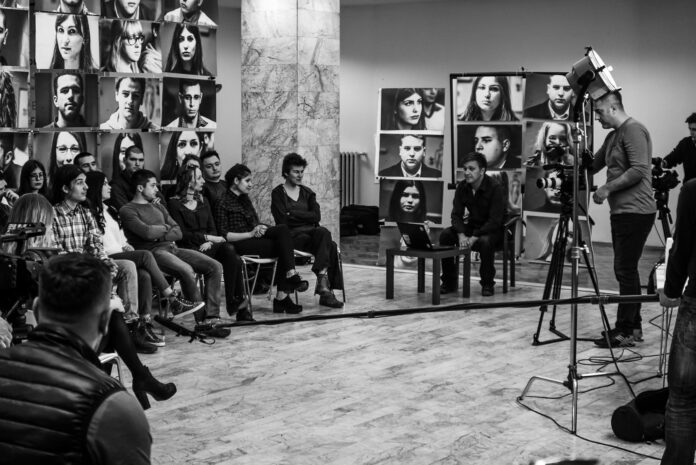The City of Zagreb recently proposed that schools ban the use of mobile phones during school hours. More and more schools in Serbia are introducing similar measures, and a new law is being prepared to make such bans possible. In Bosnia and Herzegovina, this practice is still at an experimental stage. In North Macedonia, Montenegro, and Kosovo, there are no state-level regulations, so the decision is left to individual schools. Around the world, around 60 countries have already banned mobile phones in schools.
The first analyses of mobile phone bans in schools have also been published. They show that in such schools, aggression among students is lower, communication between students and teachers improves, concentration levels rise, and students socialize more. Significantly, academic performance also tends to improve. On the show PERSPEKTIVA, young people have been highlighting the negative effects of mobile phones and social networks for years.
“The difference between “millennials” and “Generation Z” is that phones and the internet have taken over our lives and diminished our ability for critical thinking.”
https://www.slobodnaevropa.org/a/perspektiva-tuzla-mladi/33101655.html
“Communication among peers is largely at a poor level. Social networks have hugely influenced that. More and more, we communicate only through messages, and we’ve forgotten how to express ourselves. Specifically, our vocabulary has become very limited.”
https://www.youtube.com/watch?v=GDl1k2p9baM
“On TikTok, I don’t think users even notice what they’re watching. The information just keeps coming, and we absorb it constantly. We turn into zombies who only absorb information, without any control, and in the end, somehow, it shapes who we are.”
https://www.slobodnaevropa.org/a/perspektiva-sarajevo-film-festival/32617958.html
“Under the influence of social networks, people isolate themselves from things they don’t like or don’t want to hear.”
https://www.slobodnaevropa.org/a/perspektiva-sarajevo-film-festivalu-generacija-/32638235.html
“Depression among young people, both in Tuzla and throughout BiH and the Balkans, is a growing problem. For the recurring depression and anxiety I believe parents are about 70% to blame, and social networks 30%.”
https://www.slobodnaevropa.org/a/perspektiva-tuzla-mladi/33101655.html
“I think that precisely the speculations and heated discussions on social networks only increase tension, prejudice, and the stigmatization of certain groups of people.”
https://www.slobodnaevropa.org/a/perspektiva-bihac-usk-bosna/33231286.html
“Regarding social networks, I’d say they promote the illusion of perfect lives. In other words, too much attention is given to material goods, social status, and our position in society.”
https://www.slobodnaevropa.org/a/perspektiva-bihac-mladi-bih/33240579.html
Experts emphasize that banning mobile phones in schools is not a magic wand. Research from the United Kingdom shows that students spend even more time on social networks after school hours. In the Netherlands, studies suggest that the impact of such bans depends heavily on how they are implemented. So, banning mobile phones alone is not enough. However, few, if any, experts dispute the justification for banning cell phones in schools.














